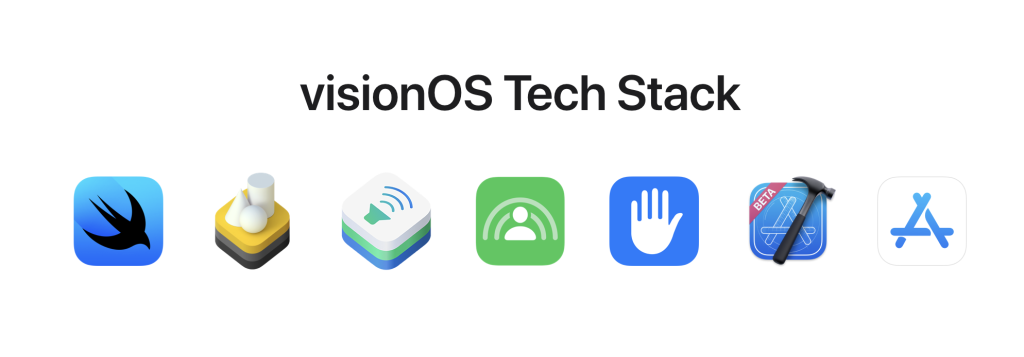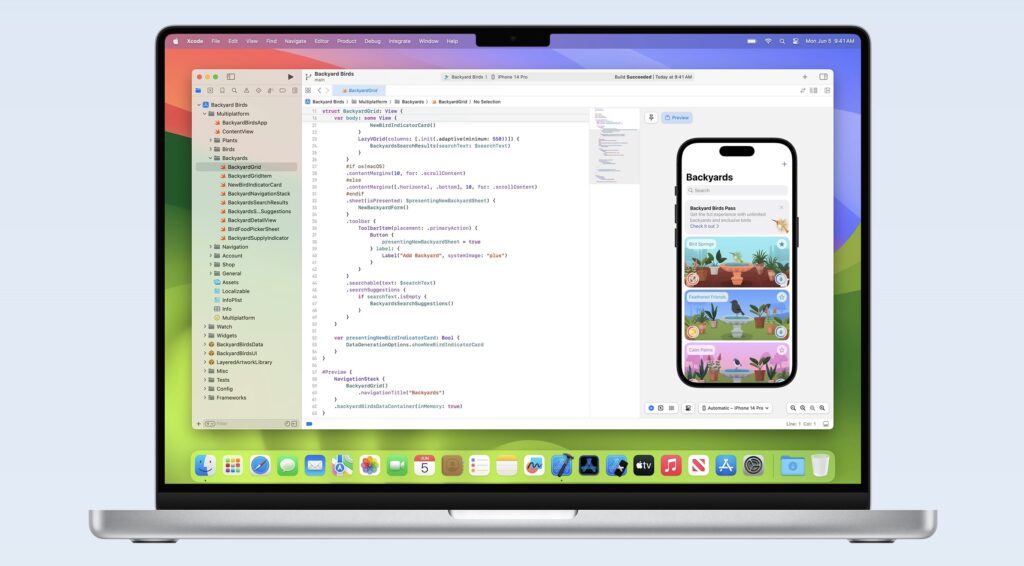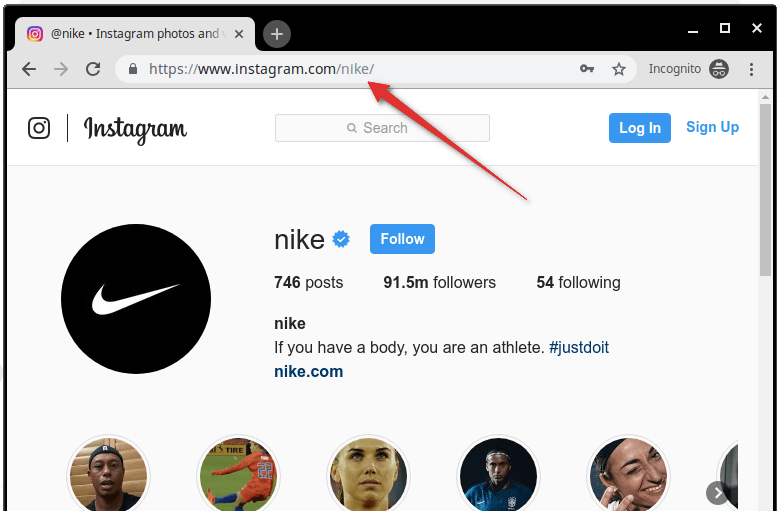News
Tech Stack for Apple visionOS in 2024
visionOS is a operating system designed by Apple for spatial computing and immersive experiences, as interpreted from context provided. It seems to feature advanced eye and hand control, spatial audio, and a heavy emphasis on augmented reality (AR) or virtual reality (VR) experiences.
From a developer’s perspective, it appears to support well-established spatial frameworks such as SwiftUI, UIKit, RealityKit, and ARKit. This would likely allow for a seamless transition for developers familiar with these tools, enabling them to leverage their existing codebases without having to rewrite applications from scratch.

- Languages: Swift is mentioned as the recommended language to adopt when creating interfaces adaptable to any platform, including visionOS.
- Developer Tools: Tools like Xcode and Reality Composer Pro are pointed out. These tools offer an array of features like design for spatial computing and 3D content rendering.
- Frameworks and APIs:
- SwiftUI is specifically mentioned as a technology for building spatial content for visionOS.
- Scenes are used to organize the app’s UI and are a fundamental part of visionOS.
- RealityKit is indicated as a 3D rendering engine deeply integrated with SwiftUI for building volumetric interfaces.
- USDZ and MaterialX are discussed in relation to 3D content and shaders.
- PHASE and AVFAudio are frameworks leveraged for audio content creation and positioning within scenes.
- Group Activities framework is hinted at for implementing shared experiences in apps via SharePlay.
- Core Location is noted as a framework to check device feature support.
- Content Formats: The developer will need to work with 3D content formats and stereoscopic videos, and they will also need to prepare audio soundtracks, possibly using Spatial Audio.
- Testing and Performance Tuning: Developers are encouraged to set performance targets, monitor them using Instruments, and adopt continuous integration workflows, potentially using XCTest and Xcode Cloud.
A fresh iteration of Xcode 15, Apple’s comprehensive suite for app development, has now been unveiled. This updated version brings with it support for VisionOS, enabling developers to create applications for the innovative mixed reality (MR) headset recently launched. Additionally, it introduces a range of new features aimed at bolstering developer efficiency and productivity.

This is an updated article from last year, there are not many changes. Recently, it was announced that Apple’s Vision Pro will start selling in 2024.
-

 Manage Your Business2 days ago
Manage Your Business2 days agoTOP 10 VoIP providers for Small Business in 2024
-
Edtech2 days ago
How to fix PII_EMAIL_788859F71F6238F53EA2 Error
-

 Grow Your Business6 days ago
Grow Your Business6 days agoThe Average Size of Home Office: A Perfect Workspace
-
Solution Review6 days ago
Top 10 Best Fake ID Websites [OnlyFake?]
-

 Gaming Technologies4 days ago
Gaming Technologies4 days agoHow to Set Up Text-to-Speech for Channel Points on Twitch





